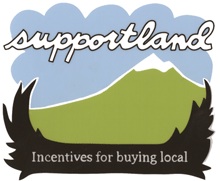 You know what’s ironic about Vice’s “Portland Has a Hip-Hop Problem?” Many local artists complain about getting no love in their hometown and how Portland is a bandwagon city. Yet, almost all of the local publications have covered everything in the Vice article better and not received close to the attention or generated as much discussion.
You know what’s ironic about Vice’s “Portland Has a Hip-Hop Problem?” Many local artists complain about getting no love in their hometown and how Portland is a bandwagon city. Yet, almost all of the local publications have covered everything in the Vice article better and not received close to the attention or generated as much discussion.
I can’t tell you how many times I’ve seen posts along the lines of “I’m glad somebody is finally covering this.”
Finally?
What about when The Skanner, We Out Here, the Mercury, Willamette Week, and the Portland Tribune did it?
What makes it worse is that the Vice article isn’t even that thorough. People have complained that it doesn’t show how much talent is in the area or discuss possible solutions to this systemic attack on local hip-hop.
Maybe I’m just bitter because I did a three part series (parts one, two, and three) last year and it didn’t receive the attention I was hoping for. In addition to getting the perspectives of artists, venue managers and owners, police, and the OLCC, I also had a full section dedicated to solutions.
From my subsequent interviews with a number of artists and other players in the local hip-hop scene, one of the consistent criticisms I’ve heard about Portland is that a lot of artists lack business sense. They don’t know how to market themselves.
I have the same problem.
In retrospect, a big reason why my series didn’t receive the buzz I wanted was because I didn’t properly promote it. Since it was comprehensive, it had to be long and let’s face it; a lot of people have a short attention span when it comes to reading.
I assumed that having a media outlet would be enough to get it out to the people and make them pay attention but that was wrong. My network wasn’t big enough to just roll it out and think people would gravitate to it (although I’m extremely appreciative of all the people who did). Sharing it on all my social media networks, emailing it to all the interviewees and sending links to anyone else I thought may be interested wasn’t enough.
Also, I didn’t fight hard enough to get the whole thing out in physical copies. It took me much longer than I expected to get part one printed and even then, I had to push just to make that happen, despite being told how good of a job I did. By the time, it came to parts two and three, I checked out and was ready to move on.
It didn’t hit me until later just how big of a deal this was. Not just did I not have physical copies when one of my interviewees requested them, but I found out months later that not having the articles in the actual paper affected their ability to be nominated for some awards, which would’ve potentially given them national exposure.
My lack of grind and understanding at the time served as a learning experience that guides me today but yet, when I see this Vice article go viral, it still stings a little.
I can’t help but think local artists have a similar feeling when they see people become national success stories even though they can’t hold a candle to all of the talent coming out of Portland.
If there’s any lesson to be learned from all of this, it’s that supporting one another and breaking the cycle of dependency are the things that will breed success. As long as we put the power in someone else’s hands, we’re at their mercy. When these people don’t share our objectives, chances are, we won’t like the results.
It doesn’t matter whether it’s OLCC and the police or editors and publishers. We know what the landscape looks like and we can’t assume the dynamics will change because the powers that be have a sudden change of heart.
Ultimately, we get back what we invest in our crafts. We have the power to speak directly to our audiences and convince them that they should invest in us.
It’s going to take a ridiculous grind to build a true sense of independence and some of us may find we don’t have what it takes. The older you get though, the less people want to hear about the big, bad gatekeepers. Frankly, we’re more powerful than that.